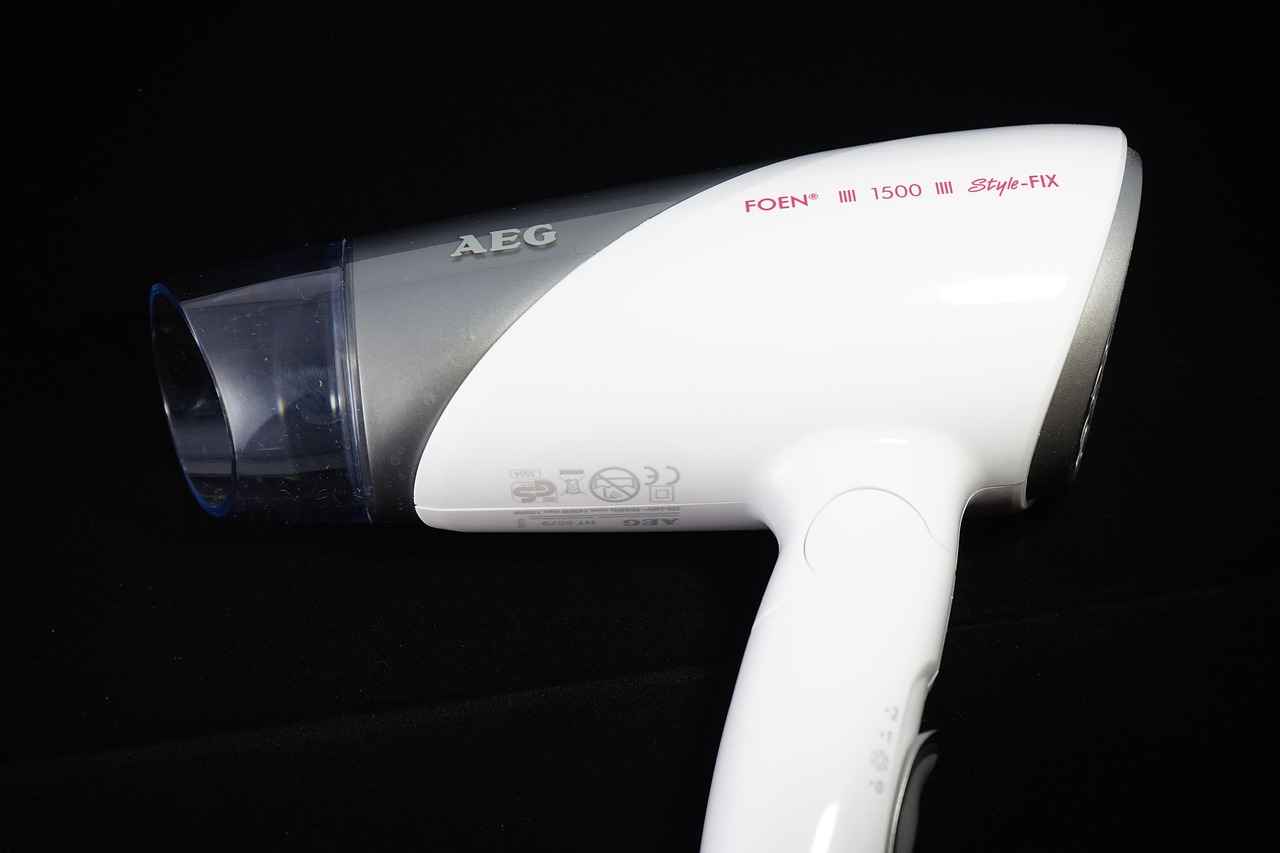This article serves as a comprehensive guide for individuals seeking affordable yet high-quality hair transplant clinics in Turkey. With the increasing popularity of hair restoration procedures, it is crucial to navigate the options carefully to ensure a successful outcome.
Turkey has emerged as a leading destination for hair transplants, known for its competitive pricing and advanced medical technology. Patients are often drawn to the country not only for the cost savings but also for the expertise of skilled professionals in the field. This guide will delve into essential factors to consider when selecting a clinic.
There are several hair transplant techniques available, primarily Follicular Unit Extraction (FUE) and Follicular Unit Transplantation (FUT). Each method has its benefits and drawbacks:
- FUE: Minimally invasive, less scarring, quicker recovery.
- FUT: More efficient for larger areas, potentially better yield.
Turkey’s reputation as a top choice for hair transplants is bolstered by its combination of affordability and high-quality medical services. The country boasts state-of-the-art facilities and a significant number of experienced surgeons, making it an attractive option for international patients.
When evaluating hair transplant clinics, consider the following key factors:
- Accreditation: Ensure the clinic is certified and meets international standards.
- Doctor Qualifications: Look for experienced surgeons with a proven track record.
- Patient Reviews: Analyze feedback from previous patients to gauge satisfaction.
Clinic accreditation is vital for ensuring patient safety. Look for certifications from reputable organizations that indicate compliance with health regulations.
Choosing a clinic with qualified surgeons is essential. Verify their credentials and experience in performing hair transplant surgeries.
Patient feedback is a valuable resource when assessing clinic quality. Reliable sources for reviews include:
- Online forums dedicated to hair transplants.
- Healthcare review websites.
Understanding the costs involved in hair transplants is crucial. Factors influencing pricing include clinic reputation, technology used, and the complexity of the procedure. To find budget-friendly options, compare prices across different clinics.
Initial consultations are critical for personalized treatment plans. Aftercare services also play a significant role in achieving successful outcomes, ensuring that patients receive the necessary support during recovery.
In summary, finding an affordable and high-quality hair transplant clinic in Turkey involves thorough research and consideration of various factors. By paying attention to accreditation, doctor qualifications, patient reviews, and cost, individuals can make informed decisions that lead to successful hair restoration.

Understanding Hair Transplant Procedures
Hair transplant procedures have gained significant popularity as effective solutions for hair loss. Among the various techniques available, two of the most prominent are Follicular Unit Extraction (FUE) and Follicular Unit Transplantation (FUT). Each method has its unique benefits and drawbacks, which potential patients should carefully consider before making a decision.
- Follicular Unit Extraction (FUE)
- Procedure: In FUE, individual hair follicles are extracted directly from the scalp using a specialized tool. This minimally invasive technique leaves tiny, dot-like scars that are less noticeable.
- Benefits: Patients often experience quicker recovery times, less discomfort, and minimal scarring. FUE is ideal for those who prefer shorter hairstyles.
- Drawbacks: The procedure can be time-consuming, especially for larger areas, and may be more expensive than FUT due to the meticulous nature of the extraction process.
- Follicular Unit Transplantation (FUT)
- Procedure: FUT involves removing a strip of scalp from the donor area, which is then dissected into individual follicular units for transplantation. This method typically results in a linear scar.
- Benefits: FUT can harvest a larger number of grafts in a single session, making it suitable for patients with extensive hair loss. It is often more cost-effective than FUE.
- Drawbacks: The linear scar may be visible if the hair is cut very short, and recovery may take longer compared to FUE.
Choosing the right hair transplant technique depends on individual needs, hair loss patterns, and lifestyle preferences. Consulting with a qualified specialist can provide personalized recommendations and help potential patients make informed choices.

Why Choose Turkey for Hair Transplants?
Turkey has rapidly emerged as a premier destination for individuals seeking hair transplant procedures. With its combination of affordability, advanced medical technology, and a high concentration of skilled professionals, Turkey offers an attractive option for those looking to restore their hair.
Affordability
One of the most compelling reasons to consider Turkey for a hair transplant is the cost-effectiveness of the procedures. Hair transplants in Turkey can be significantly cheaper than in many Western countries, often costing only a fraction of the price. This affordability does not come at the expense of quality; many clinics offer packages that include accommodation, transportation, and post-operative care, making it a convenient choice for international patients.
Advanced Medical Technology
Turkey’s hair transplant clinics are equipped with the latest medical technology, ensuring that patients receive the most effective treatments available. Techniques such as Follicular Unit Extraction (FUE) and Direct Hair Implantation (DHI) are commonly used, providing minimal scarring and faster recovery times. These advanced methods are supported by rigorous training and continuous education for medical staff, which enhances the overall patient experience.
Skilled Professionals
Turkey boasts a large pool of highly qualified and experienced surgeons specializing in hair restoration. Many of these professionals have received training in Europe and the United States, bringing international standards of care to their practices. Patients can expect personalized treatment plans tailored to their specific needs, which significantly increases the chances of successful outcomes.
Conclusion
In summary, Turkey’s growing reputation as a leading destination for hair transplants is well-deserved. With its affordable prices, cutting-edge technology, and expert professionals, patients can confidently seek treatment in this vibrant country. As you consider your options, Turkey stands out as a viable choice for those looking to enhance their appearance through hair restoration.

Researching Clinics: Key Factors to Consider
When it comes to selecting a hair transplant clinic, it is vital to conduct thorough research to ensure that you are making a trustworthy choice. Here are some essential criteria to consider:
- Accreditation: Verify that the clinic is accredited by recognized medical boards. Accreditation indicates that the clinic meets specific health and safety standards, which is crucial for patient safety.
- Doctor Qualifications: Look for clinics where the surgeons are qualified and have extensive experience in performing hair transplant procedures. Check their educational background and any specialized training they have undergone.
- Patient Reviews: Reading reviews from previous patients can provide valuable insights into the quality of care and results you can expect. Look for testimonials on independent review sites to get an unbiased perspective.
- Technology and Techniques: Investigate the methods and technologies used by the clinic. Modern techniques such as Follicular Unit Extraction (FUE) and Follicular Unit Transplantation (FUT) can greatly impact the results and recovery time.
- Consultation Process: A reputable clinic should offer a comprehensive consultation where they assess your individual needs and discuss potential treatment plans. This step is crucial for setting realistic expectations.
- Aftercare Services: Inquire about the aftercare services provided post-surgery. Proper aftercare is essential for the success of the transplant and can significantly affect the final results.
By considering these factors, you can make an informed decision when selecting a hair transplant clinic. Remember, it’s not just about finding the cheapest option but ensuring that you receive quality care and satisfactory results.
Accreditation and Certification
play a crucial role in ensuring the quality and safety of hair transplant procedures. When selecting a hair transplant facility in Turkey, understanding the significance of these certifications is essential for making an informed decision.
Firstly, clinic accreditation signifies that a facility meets specific standards set by recognized health organizations. This not only reflects the clinic’s commitment to providing quality care but also assures patients that the facility adheres to international health regulations. Look for clinics accredited by reputable bodies such as the Joint Commission International (JCI) or the International Society of Hair Restoration Surgery (ISHRS). These certifications indicate that the clinic has undergone rigorous evaluations and meets high operational standards.
In Turkey, the demand for hair transplants has surged, making it imperative for patients to choose accredited clinics. Facilities that are ISO certified or have received European Union health certifications are often more reliable. These certifications ensure that the clinic uses the latest technology and follows best practices in patient care, ultimately enhancing the success rate of hair transplant procedures.
Moreover, local regulations also play a significant role in the quality of care provided. Clinics that comply with Turkish health regulations are more likely to provide safe and effective treatments. It’s essential to verify if the clinic is licensed by the Turkish Ministry of Health, which oversees the standards and practices of medical facilities in the country.
In conclusion, when selecting a hair transplant clinic in Turkey, prioritize those with recognized accreditations and certifications. This diligence not only safeguards your health but also increases the likelihood of achieving optimal results from your hair transplant procedure.
International Standards
play a crucial role in the healthcare sector, especially in specialized procedures like hair transplants. Clinics that adhere to these standards not only ensure compliance with global health regulations but also significantly enhance patient safety and satisfaction.
When clinics follow international health standards, they implement rigorous protocols that govern every aspect of patient care. This includes maintaining a sterile environment, employing qualified medical personnel, and utilizing advanced technology. Such measures are essential to minimize the risk of complications and infections, which are critical concerns for anyone considering a hair transplant.
Moreover, clinics that prioritize international accreditation often undergo regular audits and assessments. This ensures that they consistently meet or exceed the required benchmarks for quality and safety. Patients can feel more confident knowing that their chosen clinic is recognized by reputable international health organizations.
In addition to safety, adherence to these standards can greatly improve patient satisfaction. Clinics that follow best practices often provide comprehensive pre-operative consultations, allowing patients to understand the procedure, recovery expectations, and potential outcomes. This transparency fosters trust and helps patients make informed decisions about their treatment.
Furthermore, international standards encourage clinics to invest in ongoing education and training for their staff. This commitment to professional development ensures that medical teams are well-versed in the latest techniques and technologies, which can lead to better results and a more satisfying experience for patients.
In conclusion, choosing a hair transplant clinic that adheres to international health standards is essential for ensuring both patient safety and satisfaction. By prioritizing these standards, clinics not only protect their patients but also enhance their reputation in a competitive market.
Local Regulations
play a crucial role in maintaining the quality and safety of hair transplant clinics in Turkey. As the country continues to gain popularity as a prime destination for hair restoration procedures, understanding the impact of these regulations is essential for prospective patients.
Turkey’s health sector is governed by a series of strict regulations aimed at ensuring patient safety and clinic compliance with health guidelines. These regulations cover various aspects, including the qualifications of medical personnel, the standards of facilities, and the protocols for surgical procedures.
One of the significant benefits of these local regulations is the standardization of practices. Clinics must adhere to specific health and safety protocols that are regularly monitored by government health authorities. This oversight helps to minimize risks associated with hair transplant surgeries, such as infections or complications arising from improper techniques.
| Regulation Aspect | Description |
|---|---|
| Clinic Accreditation | Clinics must obtain accreditation from recognized health authorities, ensuring they meet established safety and quality standards. |
| Surgeon Qualifications | Surgeons are required to have specific qualifications and experience in hair transplant procedures, enhancing patient confidence. |
| Facility Standards | Clinics must maintain high hygiene and operational standards, including sterile environments and modern equipment. |
Moreover, local regulations also facilitate patient rights. Patients are entitled to comprehensive information about the procedures, potential risks, and aftercare requirements. This transparency fosters trust between the patient and the clinic.
In conclusion, understanding how local regulations influence the quality and safety of hair transplant clinics in Turkey is vital for anyone considering this procedure. By ensuring compliance with health guidelines, these regulations not only protect patients but also enhance the overall reputation of Turkey as a leading destination for hair transplants.
Doctor Qualifications and Experience
When considering a hair transplant, one of the most crucial aspects to evaluate is the qualifications and experience of the surgeons performing the procedure. A successful hair transplant not only relies on advanced technology but significantly on the skill and expertise of the medical professionals involved.
Choosing a clinic that employs experienced surgeons can greatly influence the outcome of the surgery. Surgeons with extensive training and a proven track record are better equipped to handle the complexities of hair restoration techniques, such as Follicular Unit Extraction (FUE) and Follicular Unit Transplantation (FUT). These methods require precision and an understanding of the intricate anatomy of hair follicles.
Moreover, an experienced surgeon will have a deep understanding of the latest advancements in hair transplant technology and techniques. This knowledge can lead to more effective and less invasive procedures, reducing recovery time and enhancing the overall results. Patients should seek out clinics that provide detailed information about their surgeons’ qualifications, including their education, certifications, and years of experience in the field.
Additionally, it is essential to consider the surgeon’s specialization. Some surgeons may focus on specific techniques or types of hair loss, which can significantly impact the quality of care they provide. Researching surgeons who have a specialization in hair restoration can lead to better outcomes for patients.
Furthermore, patient testimonials and before-and-after photos can offer insights into the surgeon’s capabilities and the clinic’s overall reputation. Engaging with previous patients can provide a clearer picture of what to expect and help in assessing the surgeon’s skill level.
In conclusion, selecting a hair transplant clinic with highly qualified and experienced surgeons is paramount. This choice can make a significant difference in the success of the procedure, ensuring that patients achieve their desired results while minimizing risks associated with the surgery.

Patient Reviews and Testimonials
play a crucial role in evaluating the quality of hair transplant clinics. In an industry where personal experiences can significantly influence outcomes, understanding how to interpret these reviews is essential for prospective patients.
When assessing patient feedback, it is vital to consider the following aspects:
- Source Reliability: Look for reviews on reputable platforms such as medical forums, clinic websites, and independent review sites. Verified testimonials offer a more authentic perspective.
- Volume of Feedback: A clinic with numerous reviews may provide a more comprehensive picture than one with only a few. Pay attention to both positive and negative comments to gauge overall patient satisfaction.
- Specificity: Reviews that detail the patient’s experience, including the procedure, aftercare, and results, offer valuable insights. Generic comments may not reflect the true quality of care.
- Patterns and Trends: Look for recurring themes in reviews. If multiple patients mention the same issues or praises, it could indicate a consistent level of service.
Moreover, it is essential to analyze the tone of the reviews. While some patients may express dissatisfaction due to unrealistic expectations, others might provide constructive criticism that can highlight areas for improvement within the clinic.
To effectively interpret reviews:
- Consider the date of the reviews; recent feedback is often more relevant as it reflects current practices and standards.
- Evaluate the overall sentiment rather than focusing solely on individual reviews. A few negative experiences in a sea of positive feedback may not be representative of the clinic’s quality.
- Engage with the reviews by asking questions or seeking clarifications where possible. This can provide deeper insights into the patient experience.
In conclusion, patient feedback is an invaluable resource when assessing hair transplant clinics. By taking the time to analyze reviews critically, potential patients can make informed decisions that enhance their chances of achieving satisfactory results.
Where to Find Reviews
When considering a hair transplant, patient reviews serve as a crucial resource for potential candidates. Understanding where to find reliable reviews can significantly influence your decision-making process. Below are some key platforms and methods to identify trustworthy patient experiences.
- Dedicated Medical Review Websites: Websites such as RealSelf and Healthgrades specialize in medical procedures, including hair transplants. These platforms provide a wealth of patient reviews and ratings, often accompanied by before-and-after photos, offering insight into real patient experiences.
- Social Media Groups: Platforms like Facebook host numerous groups and communities focused on hair restoration. Joining these groups can allow you to engage with individuals who have undergone similar procedures, providing a platform for honest discussions and shared experiences.
- Online Forums: Websites such as Hair Restoration Network and Bald Truth Talk are dedicated to hair loss discussions. These forums often feature threads where users share their hair transplant journeys, offering a wealth of firsthand accounts and advice.
- Clinic Websites: Many reputable clinics showcase patient testimonials on their websites. While these reviews can be helpful, it’s essential to approach them with caution, as they may be curated. Look for clinics that provide links to independent review platforms for a more balanced perspective.
- Video Testimonials: Platforms like YouTube feature numerous patient testimonials. Watching these videos can give you a more personal insight into the experiences of others, helping you gauge the authenticity of their stories.
In conclusion, finding reliable sources for patient reviews is an essential step in your hair transplant journey. By utilizing a combination of dedicated medical review websites, social media groups, online forums, clinic websites, and video testimonials, you can gather a comprehensive understanding of what to expect from your chosen clinic.
Analyzing Testimonials
is a crucial step in making informed decisions, especially when considering significant procedures like hair transplants. With the rise of online reviews, it’s essential to develop the skills to critically evaluate these testimonials to separate genuine experiences from misleading information. Here are some effective tips to help you navigate through the sea of feedback.
- Check the Source: Always consider where the testimonial is published. Reviews from reputable platforms or healthcare review sites tend to be more reliable than those found on personal blogs or social media.
- Look for Detailed Accounts: Genuine testimonials often provide specific details about the procedure, recovery, and results. Vague comments may indicate a lack of authenticity.
- Watch for Patterns: If multiple reviews mention similar positive or negative experiences, it may indicate a trend. However, be cautious of repetitive language that could suggest fabricated testimonials.
- Assess the Reviewer’s Profile: Take a moment to check the reviewer’s history. A credible reviewer will have a profile with multiple reviews across various services, indicating they are a genuine user.
- Be Wary of Extremes: Testimonials that are overly positive or negative should raise red flags. Balanced reviews that discuss both pros and cons are often more trustworthy.
- Seek Out Before-and-After Photos: Visual evidence can significantly enhance the credibility of a testimonial. Look for clinics that provide real patient photos to support their claims.
By applying these tips, you can better navigate the world of online testimonials and make choices that align with your needs and expectations. Remember, the goal is to gather information that helps you feel confident in your decision regarding hair transplant clinics.

Cost Considerations: Finding Affordable Options
When considering a hair transplant in Turkey, understanding the cost factors is crucial for making an informed decision. Turkey has emerged as a popular destination for hair restoration due to its competitive pricing and high-quality medical services. However, navigating the costs can be challenging without proper guidance.
| Cost Factors | Description |
|---|---|
| Clinic Reputation | The reputation of a clinic can significantly affect pricing. Well-established clinics with a history of successful procedures may charge more. |
| Technology Used | Advanced techniques such as Follicular Unit Extraction (FUE) often come at a premium due to the equipment and expertise required. |
| Surgeon’s Experience | Experienced surgeons may command higher fees, but their expertise can lead to better outcomes. |
| Location | Prices may vary depending on the city or region in Turkey, with major cities typically having higher rates. |
To find budget-friendly options, consider the following strategies:
- Research Multiple Clinics: Compare prices and services across various clinics to find the best deal.
- Look for Packages: Many clinics offer all-inclusive packages that cover the procedure, accommodation, and transportation, providing better value.
- Read Reviews: Patient testimonials can help identify clinics that offer quality services at competitive prices.
- Consultation Offers: Some clinics provide free consultations, allowing you to gauge their services without initial costs.
In conclusion, while the cost of hair transplants in Turkey can vary widely, understanding the influencing factors and utilizing effective strategies can help you find an affordable option without compromising quality. By thoroughly researching and comparing clinics, you can achieve satisfactory results at a reasonable price.
What Affects the Cost?
When considering a hair transplant, understanding the various factors that influence the overall cost is crucial. The price of hair transplant procedures can vary significantly based on several key elements:
- Clinic Reputation: The reputation of a clinic plays a vital role in determining its pricing. Well-established clinics with a history of successful outcomes often charge higher fees due to their expertise and the trust they have built with patients. It is essential to research and choose a clinic that has positive reviews and testimonials.
- Technology Used: The technology and techniques employed in hair transplant procedures can significantly affect costs. Advanced methods, such as Follicular Unit Extraction (FUE) and robotic-assisted surgeries, may come at a premium due to the precision and efficiency they offer. Clinics that invest in the latest technology often provide better results, which can justify the higher price.
- Surgeon Experience: The qualifications and experience of the surgeon performing the procedure are critical factors. Highly skilled surgeons with extensive experience typically charge more for their services. Patients should prioritize the surgeon’s track record and expertise over cost alone.
- Location of the Clinic: The geographical location of the clinic can also influence pricing. Clinics in major cities or affluent areas may have higher operational costs, which can be reflected in their fees. Conversely, clinics in less populated regions may offer more competitive pricing.
- Number of Grafts Needed: The total cost of a hair transplant is often calculated based on the number of grafts required. Patients with more extensive hair loss will need more grafts, leading to higher overall costs. A thorough consultation with a specialist can help determine the necessary number of grafts.
- Aftercare Services: Quality aftercare is essential for optimal recovery and results. Clinics that offer comprehensive aftercare packages may charge more initially, but this investment can lead to better long-term outcomes and satisfaction.
In conclusion, while the cost of hair transplant procedures can vary widely, understanding these influencing factors can help patients make informed decisions. It is advisable to weigh the potential benefits against the costs to ensure a successful and satisfying hair restoration experience.
Comparing Prices Across Clinics
When it comes to comparing prices for hair transplant procedures across various clinics, it is essential to adopt a systematic approach to ensure you secure the best value for your investment. Here are some effective strategies to guide you in your search:
- Conduct Thorough Research: Begin by compiling a list of clinics that specialize in hair transplants. Utilize online resources, forums, and social media to gather information about their services and pricing.
- Request Detailed Quotes: Contact each clinic to request a comprehensive quote. Ensure that the quote includes all potential costs, such as consultation fees, surgery, medications, and aftercare services. This transparency will help you make accurate comparisons.
- Evaluate Included Services: Look beyond the price tag. Some clinics may offer additional services, such as post-operative care and follow-up consultations, which can add significant value to your overall experience.
- Consider the Technology Used: The type of technology and techniques employed can influence the cost. Clinics utilizing advanced methods, such as FUE (Follicular Unit Extraction), may charge more but could provide better results.
- Check for Promotions and Packages: Many clinics offer seasonal promotions or package deals that can significantly reduce the overall cost. Keep an eye out for these offers.
- Read Patient Reviews: Assessing patient testimonials can provide insights into the quality of care and results you can expect. Look for feedback regarding the value received relative to the cost.
- Consult with Multiple Clinics: Schedule consultations with several clinics to get a feel for their approach and pricing. This will also give you an opportunity to ask questions and gauge their expertise.
By following these strategies, you can confidently compare prices among different clinics, ensuring that you make an informed decision that balances cost and quality.

Consultation and Aftercare Services
play a crucial role in the success of hair transplant procedures and the overall satisfaction of patients. These services are not merely formalities; they are essential components that significantly influence the outcomes of the surgery and the patient’s experience.
During the initial consultation, patients can expect a comprehensive assessment of their hair loss condition. This includes a detailed medical history review, scalp examination, and discussion of the patient’s expectations and goals. The surgeon will provide personalized treatment options based on the patient’s unique needs. This tailored approach ensures that patients are well-informed about the procedure, including potential risks and recovery timelines.
Furthermore, the consultation is an opportunity for patients to ask questions and clarify any doubts they may have. This open line of communication fosters a sense of trust and confidence in the surgical team, which is vital for a positive outcome.
After the procedure, aftercare services become paramount. Proper aftercare is essential for the healing process and the longevity of the transplant results. Patients receive specific instructions on how to care for their scalp, including guidelines on washing, medication, and activities to avoid during the recovery phase. Adhering to these guidelines can significantly reduce the risk of complications and enhance hair growth.
Additionally, many clinics offer follow-up appointments to monitor the healing process and address any concerns. These check-ups are vital as they allow the medical team to assess the hair growth progress and make any necessary adjustments to the aftercare plan.
In conclusion, the significance of initial consultations and aftercare services cannot be overstated. They are integral to ensuring successful hair transplant outcomes and maximizing patient satisfaction. By prioritizing these aspects, clinics can not only enhance the quality of care but also build lasting relationships with their patients.
What to Expect During Consultation
When considering a hair transplant, the initial consultation is a crucial step in the journey towards restoring your hair. This session not only sets the stage for your treatment but also allows you to gain a comprehensive understanding of the procedure, ensuring you make an informed decision.
Initial Assessment
During your consultation, the first thing you can expect is an initial assessment. This typically involves a thorough examination of your scalp, hair density, and the extent of hair loss. The surgeon will also review your medical history to identify any underlying conditions that could affect the procedure.
Discussion of Goals
Next, you will have a detailed discussion about your goals and expectations. It’s essential to communicate what you hope to achieve from the hair transplant. The surgeon will help you set realistic expectations based on your individual situation and the available techniques.
Personalized Treatment Plan
One of the most significant outcomes of the consultation is the creation of a personalized treatment plan. This plan will outline the specific technique recommended for you, whether it be Follicular Unit Extraction (FUE) or Follicular Unit Transplantation (FUT), along with the estimated number of grafts required and the timeline for the procedure.
Cost and Financing Options
Another important aspect discussed during the consultation is the cost of the procedure. You will receive a detailed breakdown of the expenses involved and explore financing options if necessary. Understanding the financial commitment is vital for planning your treatment.
Post-Procedure Care
Lastly, the consultation will cover post-procedure care and what you can expect during the recovery process. This includes discussing potential side effects and the aftercare regimen needed to ensure optimal results.
In conclusion, your initial consultation is an opportunity to gather valuable information, address any concerns, and collaborate with your surgeon to create a tailored plan that aligns with your hair restoration goals. Being well-prepared and informed will contribute to a successful hair transplant experience.
Importance of Aftercare
After undergoing a hair transplant, the journey does not end with the procedure itself. Aftercare plays a critical role in the recovery process and is essential for ensuring the longevity of the results. Proper aftercare can significantly impact the success of the transplant, influencing hair growth, health, and overall satisfaction with the results.
Firstly, it is vital to follow the post-operative instructions provided by your surgeon. These instructions typically include guidelines on how to care for the transplanted area, what medications to take, and activities to avoid. Adhering to these guidelines helps to minimize the risk of complications such as infections or poor hair growth.
One key aspect of aftercare is keeping the scalp clean and free from any irritants. Patients are often advised to use gentle shampoos and avoid vigorous scrubbing of the scalp, especially in the initial weeks following the procedure. This gentle care promotes a healthy environment for the new hair follicles to thrive.
Additionally, hydration and nutrition play a significant role in recovery. Patients should focus on consuming a balanced diet rich in vitamins and minerals that support hair health. Foods high in protein, zinc, and vitamins A, C, and E can enhance the healing process and contribute to optimal hair growth.
Moreover, attending follow-up appointments is crucial. These visits allow the surgeon to monitor the healing process and address any concerns that may arise. Regular check-ups provide an opportunity for patients to ask questions and receive professional advice tailored to their specific needs.
In conclusion, aftercare is not merely a supplementary step; it is an integral part of the hair transplant process. By prioritizing aftercare, patients can maximize their chances of achieving the desired results, ensuring that their investment in a hair transplant yields lasting benefits.

Conclusion: Making an Informed Decision
In the realm of hair restoration, making an informed decision is crucial for ensuring a successful outcome. This conclusion serves to encapsulate the essential points discussed throughout the article, providing readers with the necessary tools to choose the right hair transplant clinic in Turkey.
Firstly, it is imperative to understand the various hair transplant techniques available, such as Follicular Unit Extraction (FUE) and Follicular Unit Transplantation (FUT). Each method has its unique advantages and potential drawbacks, and your choice should align with your specific needs and expectations.
Turkey has emerged as a premier destination for hair transplants, thanks to its combination of affordability and high-quality medical services. The country’s reputation is bolstered by its advanced medical technology and the expertise of skilled professionals who specialize in hair restoration procedures.
When researching clinics, key factors such as accreditation, doctor qualifications, and patient reviews should be prioritized. Ensuring that the clinic meets international standards and adheres to local regulations is vital for your safety and satisfaction.
Patient feedback plays a significant role in evaluating the quality of clinics. By examining reviews and testimonials, potential patients can gain insights into the experiences of others, helping them to make a more informed choice.
Cost is another critical aspect to consider. Understanding what affects the price of hair transplant procedures will help you find affordable options without compromising quality. Comparing prices across different clinics can also aid in securing the best value for your investment.
Lastly, do not underestimate the importance of consultation and aftercare services. A thorough initial consultation can provide clarity on the procedure, while proper aftercare is essential for achieving the best possible results.
By synthesizing this information, readers are better equipped to make a well-informed decision regarding hair transplant clinics in Turkey, ensuring a successful and satisfying hair restoration journey.
Frequently Asked Questions
- What is the average cost of a hair transplant in Turkey?
The cost of a hair transplant in Turkey can vary widely, typically ranging from $1,500 to $3,000. Factors such as the clinic’s reputation, the technology used, and the surgeon’s experience can influence the final price.
- How long does the hair transplant procedure take?
Generally, the hair transplant procedure can take anywhere from 4 to 8 hours, depending on the technique used and the number of grafts being transplanted. It’s a lengthy process, but the results are worth the wait!
- Are the results of hair transplants permanent?
Yes, hair transplant results are typically permanent. Once the transplanted hair follicles take root, they will continue to grow hair just like your natural hair. However, it’s important to follow aftercare instructions for the best results.
- What should I look for in a hair transplant clinic?
When choosing a clinic, consider factors such as accreditation, doctor qualifications, and patient reviews. A reputable clinic will have certified surgeons and positive feedback from previous patients.
- Is there any pain associated with the procedure?
Most patients report minimal discomfort during the procedure, as local anesthesia is used. Post-operative pain can usually be managed with over-the-counter pain relief medications.
- How soon can I return to normal activities after the procedure?
Most patients can resume normal activities within a few days, but it’s advisable to avoid strenuous exercise for at least a week to ensure proper healing.














